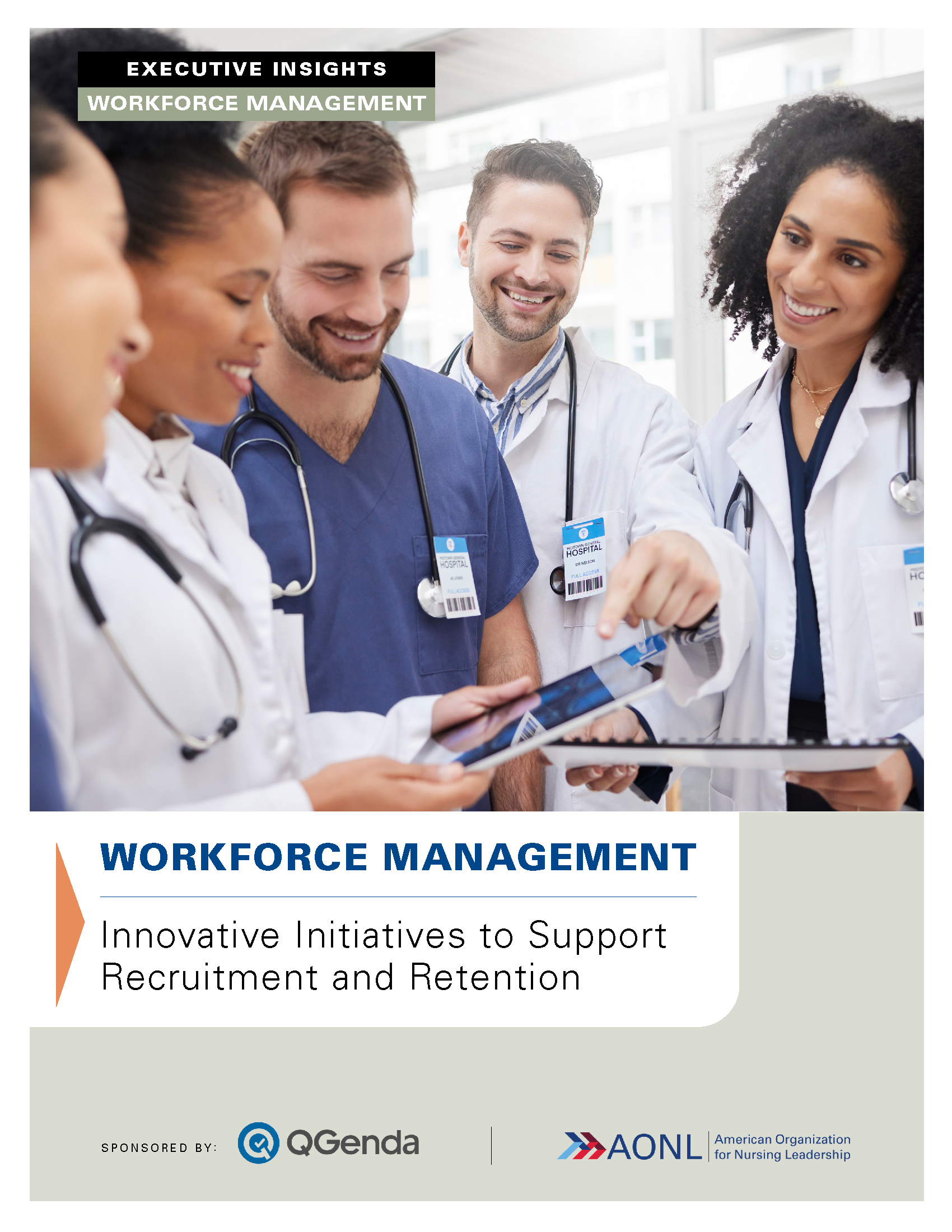
Workforce Management: Innovative Initiatives to Support Recruitment and Retention
Workface Management: Innovative Initiatives to Support
Recruitment and Retention
[Sponsored] Hospitals and health systems are grappling with complex staffing requirements, exacerbated by rising patient demands and financial constraints. As burnout, high cost labor and attrition challenge health care organizations everywhere, leaders retain nursing staff with fresh takes on training, professional development and productivity. In this executive dialogue, nurse leaders discussed health care’s most pressing workforce management issues, and the role of adaptability, equity and innovation in maintaining a thriving workforce.

This executive dialogue will highlight key findings on:
- Leadership development programs, flexible work arrangements, nurse recognition events, and a cultural focus on staff well-being can help stabilize the nursing workforce and address burnout. Similarly, virtual training and telecommuting can help accommodate nurses’ preference for flexible schedules.
- Challenges in filling specific roles, such as med/surg positions, require proactive efforts. Enhanced training, mentorship and career progression programs can help new nurses gain confidence and interest in these specialties.
- Collaboration between nursing and other units can streamline processes, encourage shared expertise, and improve communication. For example, nurses can work with IT to simplify documentation. Involving CNOs in technology decision-making can optimize resource allocation.
- Tools such as staff forecasting software and well-being scorecards can help leaders to distribute resources and schedule labor fairly. Metrics like the Productivity Index help optimize labor costs, staffing efficiency, and improve retention.
- When nurses feel heard and have a say in their work environment, they are more satisfied and likely to stay in their jobs. Supporting professional growth, honoring their preferred work styles and addressing concerns like burnout keep nurses engaged.
Sponsored by


Related Resources
Sponsored White Papers
What’s driving nurses to stay—or leave? AMN Healthcare’s 2025 RN Survey delivers critical insights and five strategies to strengthen nurse retention…
Sponsored White Papers
The Philips whitepaper, "Revolutionizing Telemetry: How Modern CMUs Drive Health Systems into the Future," offers an in-depth analysis of traditional…
Other Resources
The American Organization for Nursing Leadership (AONL) and its Workforce Committee are leading a national effort to understand and address nurse…
Sponsored Content
The current merger and acquisition environment for hospitals and health care systems is characterized by a combination of financial necessity,…
Sponsored White Papers
This white paper will help nurse leaders enhance their team’s understanding of pulse oximetry technology and ensure they are using it effectively to…


